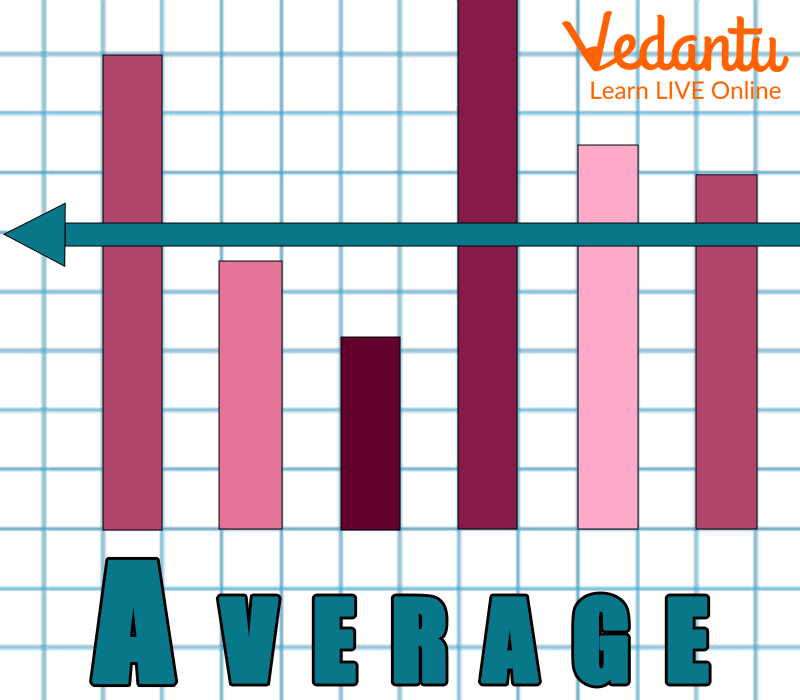- Get link
- X
- Other Apps
- Get link
- X
- Other Apps
Decoding the Costs: Your Guide to Average Annual Vehicle Maintenance Usedtruck.Truckstrend.Com
Owning a car brings freedom and convenience, but it also comes with responsibilities, most notably, the financial burden of maintenance. Understanding the average annual vehicle maintenance cost is crucial for budgeting, planning, and ensuring your vehicle remains safe and reliable for years to come. This article will break down the components of vehicle maintenance costs, explore factors influencing them, and provide practical advice for managing and potentially reducing these expenses.
Introduction: What is Average Annual Vehicle Maintenance Cost?
Decoding the Costs: Your Guide to Average Annual Vehicle Maintenance
Average annual vehicle maintenance cost represents the total amount of money you can expect to spend on keeping your car running smoothly over a year. This includes everything from routine oil changes and tire rotations to more significant repairs like brake replacements and engine work. It's a broad estimate, as actual costs can vary significantly depending on several factors, but it serves as a valuable benchmark for financial planning and assessing the overall cost of car ownership.
Understanding this average allows you to:
- Budget effectively: By knowing the potential annual maintenance expenses, you can allocate funds specifically for car upkeep.
- Plan for the future: Anticipating potential repairs can help you save for larger, less frequent expenses.
- Evaluate car ownership costs: Comparing maintenance costs of different vehicles can influence your purchasing decisions.
- Identify potential issues early: Recognizing deviations from the average might signal underlying problems that require immediate attention.

I. Breaking Down the Components of Vehicle Maintenance Costs
The average annual vehicle maintenance cost isn't a single, fixed number. It's a composite of various expenses, which can be broadly categorized as follows:
-
Routine Maintenance: These are the scheduled services recommended by your vehicle's manufacturer, typically outlined in the owner's manual. They are preventative measures designed to keep your car running efficiently and avoid larger problems down the line. Examples include:

- Oil Changes: Replacing engine oil and the oil filter at specified intervals.
- Tire Rotations: Rotating tires to ensure even wear and extend their lifespan.
- Fluid Checks and Top-offs: Checking and replenishing fluids like coolant, brake fluid, power steering fluid, and windshield washer fluid.
- Filter Replacements: Replacing air filters (engine and cabin) to maintain air quality and engine performance.
- Scheduled Inspections: Multi-point inspections to identify potential issues before they escalate.

-
Wear and Tear Repairs: These repairs are necessary as components naturally degrade over time and with use. Examples include:
- Brake Repairs: Replacing brake pads, rotors, or calipers.
- Tire Replacements: Replacing tires when the tread depth reaches unsafe levels.
- Battery Replacements: Replacing a failing battery.
- Wiper Blade Replacements: Replacing worn-out windshield wiper blades.
- Hose and Belt Replacements: Replacing worn or cracked hoses and belts.
-
Unforeseen Repairs: These are unexpected repairs that can arise due to mechanical failure, accidents, or other unforeseen circumstances. Examples include:
- Engine Repairs: Addressing engine problems like leaks, misfires, or overheating.
- Transmission Repairs: Repairing or replacing the transmission.
- Suspension Repairs: Fixing issues with the shocks, struts, or other suspension components.
- Electrical Repairs: Addressing problems with the car's electrical system, such as faulty wiring or sensors.
- Body Work: Repairing damage from accidents or collisions.
II. Factors Influencing Average Annual Maintenance Cost
Several factors significantly impact your vehicle's average annual maintenance cost:
- Vehicle Age: Older vehicles generally require more maintenance than newer ones. Parts wear out over time, and the risk of unforeseen repairs increases.
- Vehicle Make and Model: Some car brands and models are known for their reliability and lower maintenance costs, while others are prone to specific issues that can drive up expenses. Luxury vehicles typically have higher maintenance costs due to pricier parts and specialized labor.
- Driving Habits: Aggressive driving, frequent stop-and-go traffic, and driving on rough roads can accelerate wear and tear on components, leading to higher maintenance costs.
- Mileage: The more you drive, the more wear and tear your vehicle experiences, increasing the likelihood of repairs.
- Location: Labor rates and parts costs can vary significantly depending on your location. Metropolitan areas often have higher prices than rural areas.
- Maintenance Habits: Neglecting routine maintenance can lead to more significant and expensive repairs down the line.
- DIY vs. Professional Repairs: Performing some maintenance tasks yourself can save money on labor costs, but it requires knowledge, skills, and the right tools. Professional repairs ensure quality workmanship and access to specialized equipment.
III. Average Annual Maintenance Cost: The Numbers
According to reputable sources like AAA and Kelley Blue Book, the average annual vehicle maintenance cost in the United States can range from $500 to $1,500. This is a broad range, and the actual cost can vary significantly based on the factors mentioned above.
- AAA: Estimates an average of around $9,666 per year for the total cost of new car ownership, including maintenance, fuel, insurance, depreciation, and other expenses. Maintenance accounts for a significant portion of this figure.
- Kelley Blue Book: Suggests a slightly lower figure for maintenance, but the specific amount depends on the vehicle type and driving conditions.
IV. Tips for Managing and Reducing Vehicle Maintenance Costs
While you can't completely eliminate vehicle maintenance costs, you can take steps to manage and potentially reduce them:
- Follow the Manufacturer's Recommended Maintenance Schedule: Adhering to the maintenance schedule outlined in your owner's manual is crucial for preventing major problems and extending your vehicle's lifespan.
- Perform Routine Checks: Regularly check your fluid levels, tire pressure, and other basic components. Early detection of problems can prevent them from escalating.
- Address Minor Issues Promptly: Don't ignore warning signs like unusual noises, vibrations, or leaks. Addressing minor issues quickly can prevent them from turning into more expensive repairs.
- Shop Around for Service: Get quotes from multiple mechanics before authorizing any repairs. Compare prices and services to find the best value.
- Consider DIY Maintenance (If Applicable): If you have the knowledge and skills, you can perform some routine maintenance tasks yourself, such as oil changes, filter replacements, and wiper blade replacements.
- Drive Responsibly: Avoid aggressive driving, excessive speeding, and other habits that can accelerate wear and tear on your vehicle.
- Maintain Proper Tire Pressure: Keeping your tires properly inflated improves fuel efficiency and extends tire life.
- Keep Your Car Clean: Regularly washing and waxing your car can protect the paint and prevent rust.
- Consider an Extended Warranty: If you're concerned about potential repair costs, consider purchasing an extended warranty to cover unforeseen mechanical failures. Carefully review the terms and conditions of the warranty before purchasing.
- Use Quality Parts: Opt for reputable brands of replacement parts to ensure durability and reliability.
V. Potential Challenges and Solutions
Managing vehicle maintenance costs can present certain challenges:
- Unforeseen Repairs: Unexpected repairs can be a significant financial burden.
- Solution: Build an emergency fund specifically for car repairs. Consider a credit card with a low interest rate for unexpected expenses.
- Finding a Trustworthy Mechanic: It can be challenging to find a mechanic you can trust.
- Solution: Ask for recommendations from friends, family, or online reviews. Look for mechanics with certifications and a good reputation.
- Understanding Complex Repairs: It can be difficult to understand complex repairs and ensure you're not being overcharged.
- Solution: Ask the mechanic to explain the repair in detail and provide a written estimate before starting work. Get a second opinion if you're unsure.
- Balancing Cost and Quality: It can be tempting to choose the cheapest repair option, but this can sometimes lead to lower quality work and more problems down the line.
- Solution: Prioritize quality and reliability over price. Look for mechanics who use reputable parts and offer warranties on their work.
VI. Table Price: Average Annual Vehicle Maintenance Cost Breakdown
| Category | Description | Average Annual Cost | Frequency |
|---|---|---|---|
| Routine Maintenance | |||
| Oil Change | Replacing engine oil and filter | $75 - $150 | 2-4 times per year |
| Tire Rotation | Rotating tires to ensure even wear | $25 - $50 | Every 6,000-8,000 miles |
| Fluid Checks & Top-offs | Checking and replenishing coolant, brake fluid, power steering fluid, etc. | $20 - $40 | At each oil change |
| Filter Replacements | Replacing air filters (engine and cabin) | $30 - $75 | Annually |
| Scheduled Inspections | Multi-point vehicle inspections | $50 - $150 | Annually |
| Wear & Tear Repairs | |||
| Brake Repairs | Replacing brake pads, rotors, or calipers | $150 - $500 | As needed |
| Tire Replacements | Replacing tires | $400 - $1,000 | Every 3-5 years |
| Battery Replacements | Replacing a failing battery | $100 - $300 | Every 3-5 years |
| Wiper Blade Replacements | Replacing worn windshield wiper blades | $20 - $50 | Annually |
| Unforeseen Repairs | |||
| Engine Repairs | Addressing engine problems (leaks, misfires, etc.) | $500 - $5,000+ | As needed |
| Transmission Repairs | Repairing or replacing the transmission | $1,000 - $5,000+ | As needed |
| Suspension Repairs | Fixing issues with shocks, struts, etc. | $300 - $1,500+ | As needed |
| Electrical Repairs | Addressing problems with the electrical system | $100 - $1,000+ | As needed |
Note: These are average cost ranges and can vary depending on the vehicle, location, and specific repair.
VII. Frequently Asked Questions (FAQ)
-
Q: Is it better to lease or buy a car when considering maintenance costs?
- A: Leasing typically includes maintenance in the monthly payment, which can provide predictable expenses. However, you don't own the car at the end of the lease. Buying a car allows you to build equity, but you're responsible for all maintenance costs. The best option depends on your financial situation and preferences.
-
Q: Can I reduce maintenance costs by driving less?
- A: Yes, driving less reduces wear and tear on your vehicle, which can lower maintenance costs.
-
Q: Are extended warranties worth the cost?
- A: Extended warranties can provide peace of mind and protect you from unexpected repair costs. However, they can be expensive, and some may have limitations. Carefully review the terms and conditions before purchasing.
-
Q: How can I find a reliable mechanic?
- A: Ask for recommendations from friends, family, or online reviews. Look for mechanics with certifications and a good reputation. Check with the Better Business Bureau for any complaints.
-
Q: What is the most important maintenance item to prioritize?
- A: Regular oil changes are crucial for maintaining engine health and preventing major problems.
Conclusion: Staying Ahead of the Curve
Understanding the average annual vehicle maintenance cost is essential for responsible car ownership. By being proactive with maintenance, driving responsibly, and planning for potential repairs, you can minimize expenses and keep your vehicle running smoothly for years to come. Remember that these are just averages; your actual costs may vary. The key is to stay informed, be prepared, and prioritize the long-term health of your vehicle. Ultimately, a well-maintained car is a safer, more reliable, and more valuable asset.
- Get link
- X
- Other Apps
Comments
Post a Comment